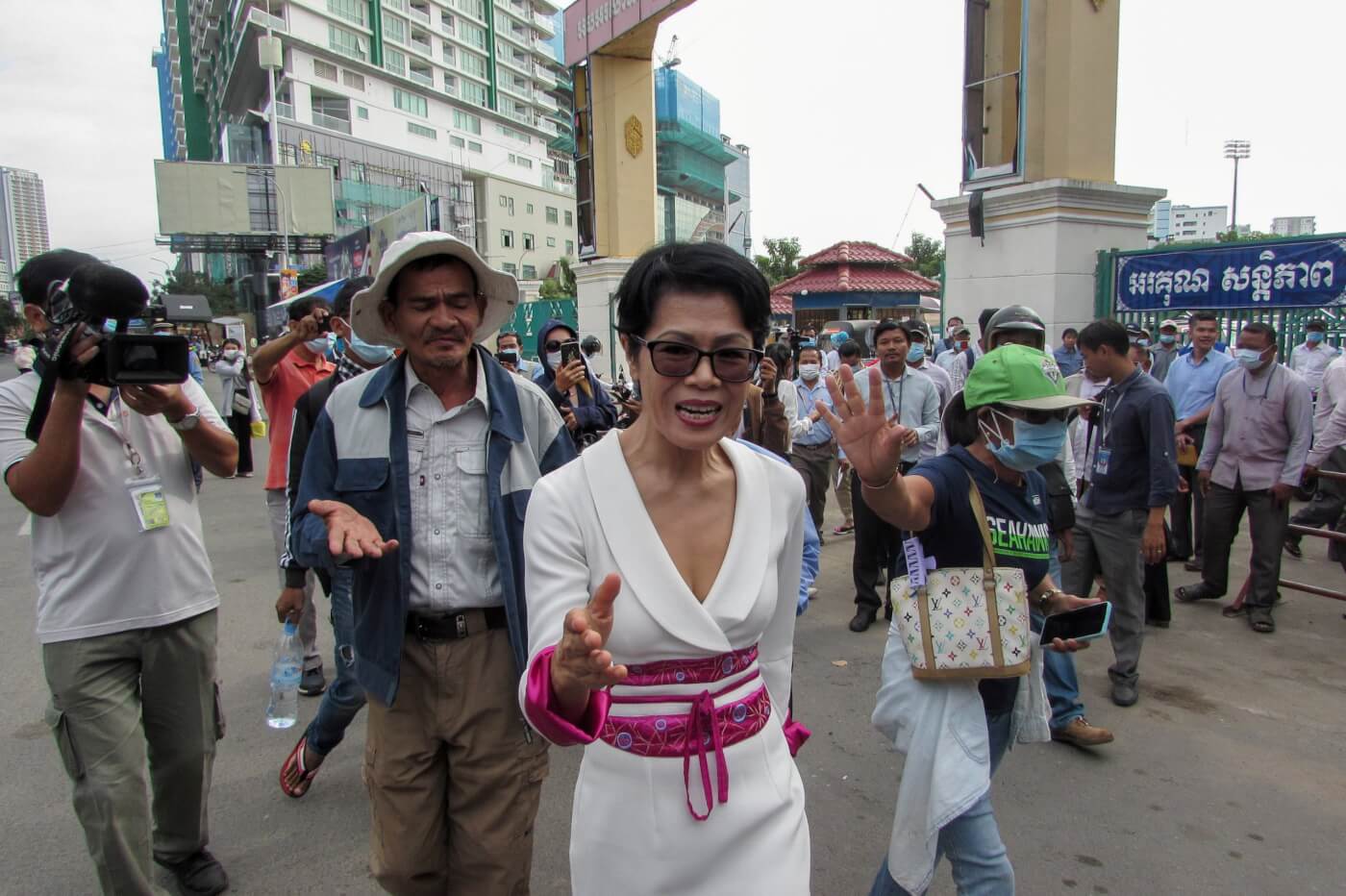Cambodia’s Pnhom Penh municipal court has begun hearing the cases of 129 dissidents, activists, and opposition figures charged with treason for taking part in non-violent political activities, in what has been described as a “sham trial”.
Most of the defendants are charged with conspiracy to commit treason and incitement to commit a felony, possibly facing up to 12 years in prison. Sam Sakong, one of the defence lawyers, expressed his scepticism with regards to the legitimacy of the trials, saying:
“I am very doubtful about this arrangement and whether fairness will be received by my clients according to the international standard.”
One of the best-known defendants is Theary Seng, a Cambodian-American lawyer who has long been one of the most outspoken critics of Hun Sen and his government. She was vocal in her condemnation of the partisan nature of the trial, calling it a “political circus” and saying that it was being used to:
“block the view of the international community of the really serious issues of human rights violations, of political repression.”
The US embassy in Pnom Penh also released a statement, saying they were “closely following a growing number of court cases” and called on the CPP to ensure the protection of the rights and freedoms of the Cambodian people:
“Freedoms of association and expression, and tolerance of dissenting views, are vital in a genuine democracy. We urge authorities to protect these freedoms, as enshrined in Cambodia’s constitution, and to take meaningful steps to reopen civic and political space in the lead up to 2022 commune elections and 2023 national elections.”
The majority of those being tried are former members or supporters of the Cambodia National Rescue Party (CNRP) – Cambodia’s primary opposition party until its forced dissolution as part of the crackdown on Hun Sen’s political adversaries in November 2017.
Since the crackdown, Cambodia’s human rights record has deteriorated dramatically, with attacks on political opposition, the independent media and rights activists becoming more frequent.
The adoption of a decree titled “Publication Controls of Website and Social Media Processing via Internet” in 2018, severely limited the circulation of impartial news by allowing for more government interference with online media.
Additionally, throughout 2019, Hun Sen’s Cambodian People’s Party (CPP) imposed sweeping restrictions on former members of the CNRP. A January 2019 amendment to the Law on Political Parties allowed for the Prime Minister to decide which of the initial 118 banned senior CNRP members could regain their political rights – eventually prohibiting 107 from engaging in political activities for five years.
Between January and May 2019, Cambodian authorities issued over 147 arbitrary court and police summonses against CNRP members or supporters, with allegations vaguely insinuating that the person summoned may have violated the Supreme Court ruling dissolving the CNRP.
These trials are just the latest instalment of the repressive measures taken against the Cambodian people. More must be done by the international community to put an end to this flagrant violation of human rights.

